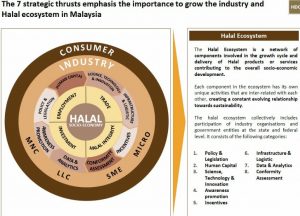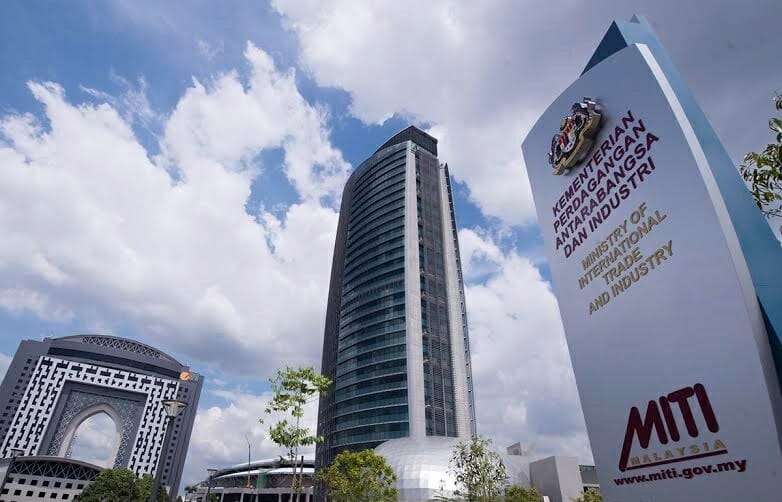The crafting of the Halal Industry Master Plan 2030 is timely as we seek to strategically capitalise on the growing global demand for halal products and services, as well as strengthen Malaysia’s leadership role by leveraging on our world-recognised halal industry ecosystem and cumulative expertise, said Deputy Prime Minister Dato’ Seri Dr Ahmad Zahid Hamidi today.
Speaking at the launch of the Halal Industry Master Plan 2030 (HIMP 2030) today (March 23) — the country’s blueprint to make Malaysia the undisputed global leader in the halal industry – Ahmad Zahid added the HIMP 2030’s theme of Prominent, Visible and Globalised Halal Malaysia represents our key objectives to catalyse the inclusive and comprehensive growth of Malaysia’s halal industry, and improve the nation’s dynamic halal industry ecosystem for more of our products and services, to support the future growth of Malaysia’s socio-economic prosperity.
Joining the Deputy Prime Minister was Minister of International Trade and Industry Tengku Datuk Seri Utama Zafrul Aziz.
Ahmad Zahid, who is also the Chairman of the Malaysian Halal Development Council said, “The Ministry of International Trade and Industry (MITI) is honoured to be the strategic driver for the HIMP 2030, with strong execution support by our agency, the Halal Development Corporation. One of MITI’s priorities for 2023 is to expand trade, for which halal goods and services can play a more prominent role.
Meanwhile, Tengku Zafrul Aziz said: “Through HIMP 2030, we are projecting that our halal industry will expand to USD113.2 billion by 2030, with a GDP contribution of 8.1 percent by 2025. MITI will continue to enhance all components of our halal ecosystem towards elevating Malaysia’s position as a key player in the global halal market, and capitalising on the two-billion strong global Muslim population. In achieving these objectives, MITI and its agencies have already started work to position the industry as a lucrative and competitive sector, particularly for SMEs.”

HIMP 2030, Halal Development Corporation
Under HIMP 2030, a total of 23 initiatives have been identified to anchor the seven strategic thrusts and capitalise on opportunities and address challenges. These seven strategic thrusts include enhancing halal-friendly policy and legislation; creating new and bigger market spaces for Malaysia’s halal products and services; establishing a larger pool of halal experts and professionals to meet global needs; enhancing the quality and integrated infrastructure development; fostering thought leadership; producing more home-grown halal champions; and facilitating more competitive Bumiputera participation in the halal industry.
HIMP 2030 will be driven by five (5) key target outcomes, which include having a robust and diversified domestic halal industry; offering end-to-end Shariah compliance; enhancing the ease of doing business in Malaysia; having a competitive business ecosystem; and promoting “Halal Malaysia” globally.
Malaysia Halal Industry Performance 2022
Malaysia’s halal exports continued its growth trend in 2022 with a total halal export value of RM59.46 billion, an increase of RM23.16 billion or 63.8 percent from the previous year. This growth, despite the challenges in overall global economy, is a testament of the growing demand for halal product globally and reflects the importance of halal industry on Malaysia’s economy.
In terms of sectoral contribution, food and beverages continues to be the main contributor to Malaysian halal economy with a RM27.84 billion in total export value representing 46.8 percent of total Malaysian halal exports. It increased 57.8 percent from 2021.
The second largest contributor is Halal Ingredients, which also recorded a significant increase of 73.1 percent from 2021 to RM23.35 billion, or 39.3 percent of total halal exports. The Cosmetics & Personal Care sector remains in third with a RM3.49 billion total halal export value, an increase of 43.5 percent as compared to the previous year.
Palm Oil Derivatives grew 63.6 percent from 2021 to RM2.79 billion, representing 4.7 percent of Halal exports. Industrial Chemical increased 69.7 percent from 2021 to RM1.27 billion while Pharmaceuticals recorded the highest growth with a 156.7 percent increase from 2021, contributing RM0.72 billion or 1.2 percent of total Halal exports.
Source : BusinessToday Malaysia


